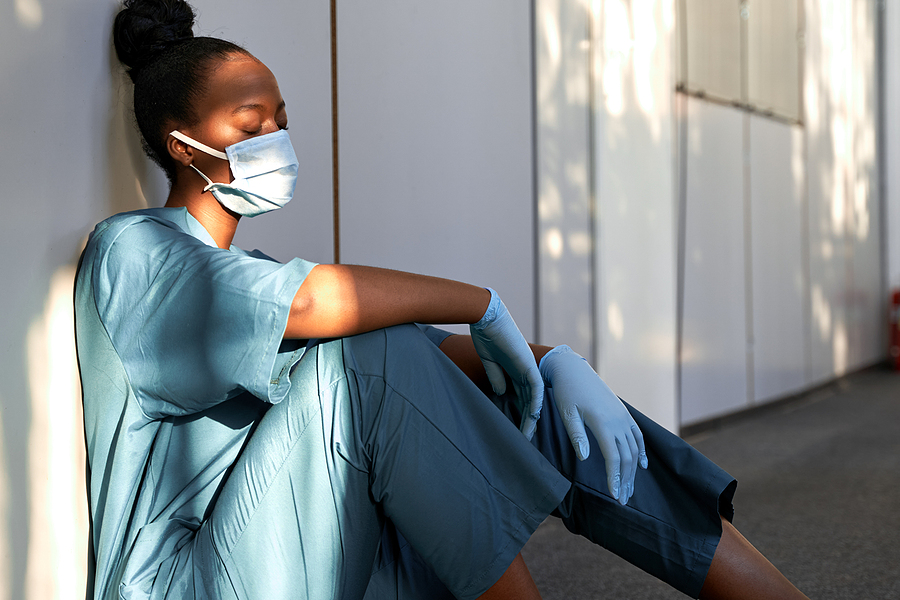“We’re tired.”
It’s a sentiment expressed by so many healthcare workers these days.
Most of us have experienced some level of COVID fatigue during the pandemic. We’re tired of being stuck in our homes, distanced from family and friends and unable to enjoy our favorite activities. We’re tired of watching the numbers climb and listening to reporters tell us about yet another record-breaking day, week or month.
But this isn’t the kind of tiredness our healthcare workers are trying to describe.
In a recent survey of 1,119 healthcare workers, 93 percent were stressed, 86 percent were anxious and a full three quarters (75 percent) reported being overwhelmed.
These frontline workers have many of the same stresses as the rest of us. They’re worried about money. They’re trying to navigate school closures. They’re dealing with loneliness and isolation.
But their worries don’t end there. Although vaccines began to arrive in mid-December, many healthcare workers haven’t received their first dose yet, leaving them vulnerable to exposure.
It’s not just themselves they’re worried about either. Three quarters of healthcare workers reported worrying about transmitting the virus to their children and nearly half said they were afraid of exposing their spouse or elderly family members.
Lack of adequate personal protective equipment (PPE) is yet another stress they’re facing. More than half of infection prevention specialists working in hospitals report using their one-time use N95 masks five times or more.
Days off have become a thing of the past. Many healthcare workers have been on shift seven days a week for months now. There’s no time for proper self-care, no time to rest and recuperate, no time to take care of the emotional repercussions of watching patients die.
For healthcare workers, it’s not just COVID fatigue. It goes beyond simple burnout. There is a war being waged in healthcare facilities, with doctors, nurses, orderlies and other staff serving as the troops. Our support and appreciation goes out to these healthcare workers, first responders, and others who are on the frontlines of the pandemic. We are truly grateful for everything you’ve done, and what you continue to do each day.
